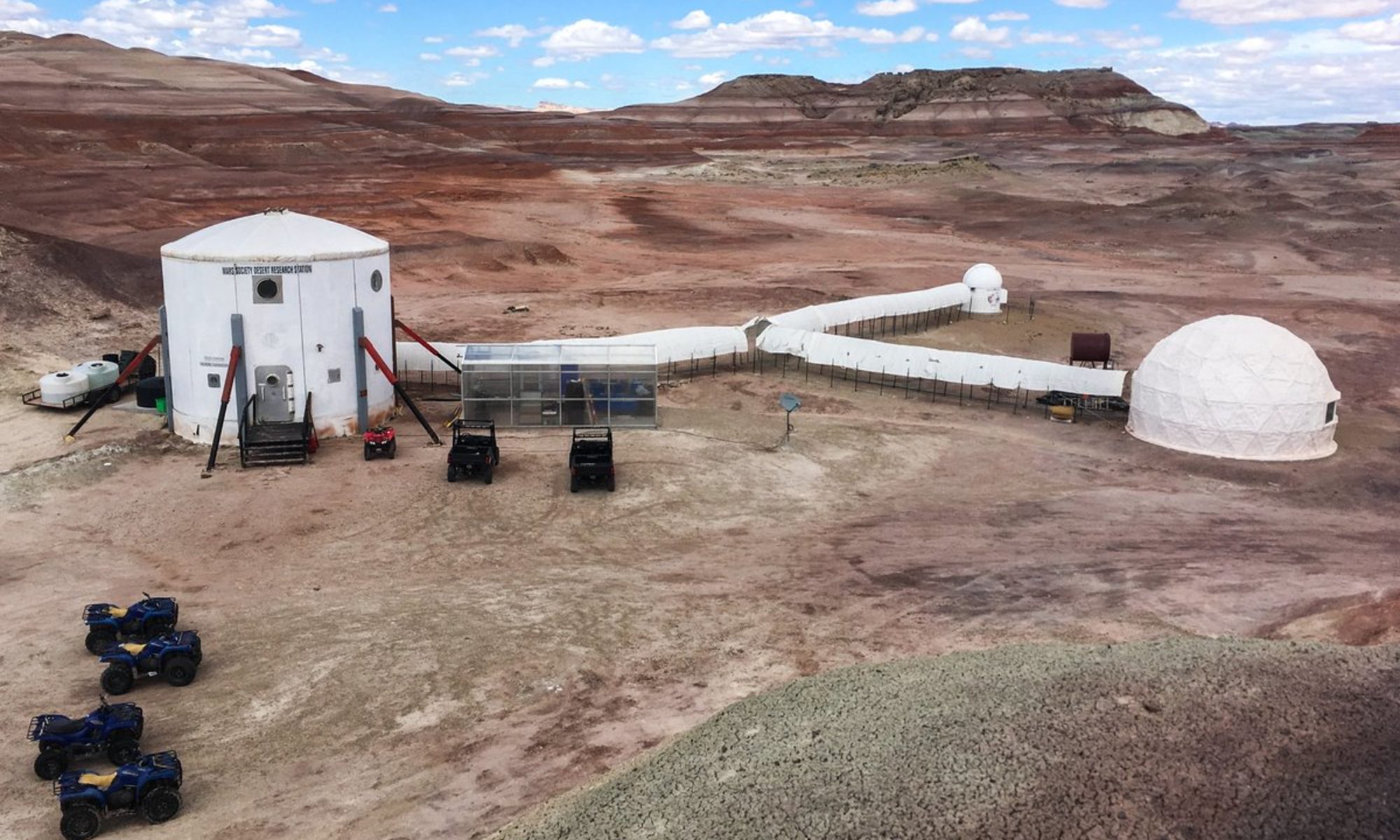Crew 238 Journalist Report 05Jan2022
Submitted by Sionade Robinson, Commander, Crew 238.
A serene day of planning, research, and gardening in the Greenhab draws to an end with the shared preparation of our evening meal. I’m looking forward to it. We have had a small harvest.
It seems curious to me that many anticipations of life on Mars
emphasise its potential for strangeness, danger, and deprivation. I suppose this is because for more than a hundred years, explorers have peppered their ripping yarns with accounts of peril, cold, hunger, and if they really wanted to hit the top of the bestseller charts, an imminent and grisly death.
But there’s another perspective, that’s surely much more relevant to the potential of humanity to become, one day, an interplanetary species. It focuses on the positive aspects of life in an extreme and unusual environment, because for many a visit to such a place is a cherished and important part of their life, an impetus to growth, for deepening personal resources and relationships, and always to be remembered with pride and enjoyment.
Decades of research show the return rate of those who have had such experiences to polar regions, to space, and, for that matter, to the MDRS, is high. The disappointment among those who are frustrated in their desire to go back can be profound.
Entering a novel and engrossing situation, such as an analogue Martian habitat calls to something deep inside many people. Human beings are ‘‘active organisms that seek challenges and engage in activities for their own sake’’ and people who choose to go into such experiences are those who like challenges, learning, and, frankly, proximity to other human beings in confined spaces.
Our XO (and Crew Journo) PJ Marcellino embodies these valuable qualities. His energy effervesces, his project management skills abound, and the headache of scheduling our ambitious and overlapping research plans has yet to make a dent in his good humor. We hope! (Seriously, how much patience can one person have?).
But far beyond the capacity for organization, the outcome of our work on the wellbeing of future space-farers will depend on our shared and individual storytelling, and in this area, PJ is a master. We are each underway, in our own way. He will shape our impact.
One further positive outcome of experiences in extreme environments is that members of crews often come back with a less superficial set of values, more tolerance and affection toward other people, and higher self-confidence (Suedfeld 1998). I have a feeling that’ll be something, thanks to PJ’s success in both his roles, each of us will also be able to claim too.

